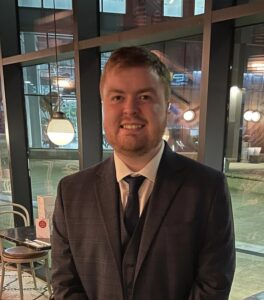Protecting Public-Facing Professionals and their dependents Online (3PO) are delighted to announce our first multi-stakeholder Symposium which will be held at the Apex Hotel, Waterloo Place in Edinburgh on Tuesday 3rd October 2023.
With representation from academia, policing, industry, government, and NGOs, we will showcase the project’s results, recommendations, and next steps.
Professor Liz Aston (Director of SIPR, Professor of Criminology Edinburgh Napier University)
DCS Jordana Emerson – Police Scotland
Professor Fraser Sampson (Commissioner for the Retention and Use of Biometric Material and Surveillance Camera Commissioner)
Martin Snowden QPM
Dr Oliver Merry (Sheffield Hallam University)
Findings from interviews with front line police officers/staff, specialist officers/staff, and children of police officers/staff.
Presenters:
Session led by Dr Marcel Obst and Martin Snowden QPM
This session will discuss proposed 3PO solutions to online harms experienced by police personnel. The session will showcase solutions for police officers, staff and their families on how to support the prevention, identification and mitigation of online harms. We will present a range of solutions, covering training, organisational support and technological options.
Presentations by :
All delegates will be invited to separate into discussions on one of the following 5 themes:
Session 1: Youth
Chairs: Dr Lasara Kariyawasam
Facilitator: Monica Craig
For the solution exercise, Dr. Katrin Mueller-Johnson and Dr. Lasara Kariyawasam will invite attendees at their table to discuss ways in which public facing parents can negotiate the internet use of teenage children. They will also ask the audience to debate whether or not parents who are in public facing occupations should or should not restrict their children’s social media use for safety reasons, and how to best to approach this issue with their children. The aim of this table discussion will be to brainstorm ideas on how parents in the public eye should deal with their teenage children’s social media use, the discussions, restrictions and negotiations around surfing the internet, and online safety whilst also allowing teenagers to enjoy using social media.
Session 2: Specialist Officers
Chairs: Dr Ingolf Becker and Dr Kris Christmann
Facilitator: Professor Liz Aston
Session 3: Online Harms and policy
Chairs: Dr Kate Whitfield and Adam Bates
Facilitator: Edward Pryor
Session 4: Organisational Solutions
Chairs: Dr Shane Horgan and Dr Yen Nee Wong
Facilitator: Dr Matt Bland
Session 5: Technology
The discussion at the technology table will turn around the Self-assessment tool, which allows users to understand and change their privacy settings on online platforms. We will invite participants to share their opinions and to think about when and how this tool can be used, additional features it should have, how it could be useful in the eyes of the organisation and family members, and how risk levels should be categorised.
Chairs: Dr Marcel Obst, Martin Snowden QPM and Jack Spencer
Facilitator: Jack Spencer (Sheffield Hallam University)
The final panel session will provide space for reflection on key themes emerging throughout the day and a discussion on directions of travel going forward within protecting public facing professionals and their dependents online.
Panel Members include:
Dr Shane Horgan (Lecturer – Edinburgh Napier University
Laura Corrick – Lancashire Police
Fraser Sampson (Commissioner for the Retention and Use of Biometric Material – Sheffield Hallam University)
Inspector John Crapper (South Yorkshire Police)
CHAIR: Professor Liz Aston (Edinburgh Napier University)

Professor Liz Aston is the Director of the Scottish Institute for Policing Research (SIPR) and an Associate Professor of Criminology at Edinburgh Napier University. Recently Liz was appointed by the Cabinet Secretary for Justice to establish and Chair an Independent Advisory Group on New and Emerging Technologies in Policing. She is the co-editor of Palgrave’s Critical Policing Studies Series. Dr Aston sits on the International Advisory Board for the N8 Policing Research Partnership, the Governance Board of the Scottish Violence Reduction Unit, and is a member of various Police Scotland advisory/reference groups, including the Drug Strategy Board, Naloxone Delivery Steering Group, and until 2019 chaired the Cyber Kiosks External Reference Group. Liz’s research expertise centres on local policing, and she is developing work on the intersect between policing and drugs, and technology in policing. She has recently been awarded an ESRC Open Call Grant as PI for INTERACT (Investigating New Types of Engagement, Response and Contact Technologies in Policing). She is the co-lead for the Governance Working Group in the European Police Stops COST Action as well as joint work package leader on ‘Unity’, a €4.6 million Horizon 2020 EC funded project on Community Policing, technology and co-operation between the police and public.
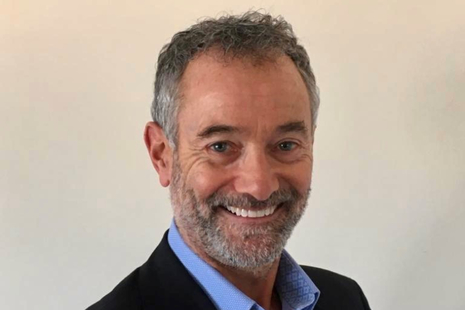
Professor Sampson has over 40 years’ experience working in the criminal justice sector, having served as a police officer for 19 years before becoming a solicitor specialising in policing law, conduct and governance. He is an Honorary Professor and member of the Advisory Board at the Centre for Excellence in Terrorism, Resilience, Intelligence and Organised Crime research at Sheffield Hallam University where he gained a PHD in digital accountability in law enforcement. He has also worked as the national chair of the Association of Police and Crime Chief Executives and was appointed CEO and solicitor to the Police and Crime Commissioner for West Yorkshire in 2012, later being seconded as CEO to the Police, Fire & Crime Commissioner in North Yorkshire.
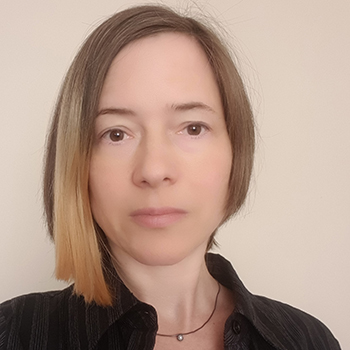
Saskia is Professor of Digital Communication and Security at Sheffield Hallam University. Her research interests lay at the intersection of human-computer interaction, organisational communication, and organisational change with a special focus on ICT implementation, privacy, and the management of transparency. She holds master degrees in Psychology, Linguistics and Organisational Dynamics from universities in Germany and the US and a PhD from the Faculty in Industrial Design Engineering, TU Delft, Netherlands. Before joining CENTRIC she was Co-Director of the Centre of Excellence in Public Safety Management at Rotterdam School of Management, Erasmus University (Netherlands). Her work is published in international journals such as MIS Quarterly, Government Information Quarterly, New Media and Society and Communications of the ACM as well as numerous international conference. She regularly co-edits books, including Big Data for National Security, Open Source Intelligence, Digital Police Work (in German) and Community Policing – A European Perspective.
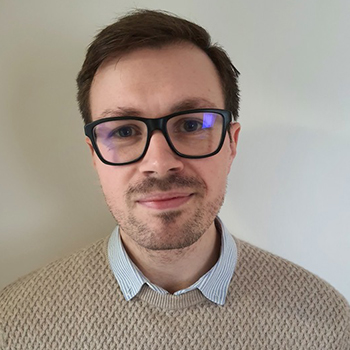
Oliver Merry is a Senior Lecturer in Forensic Psychology at Sheffield Hallam University. His research interests focus around protecting adults and children from online harms and how these online harms can transition into real world threats. Oliver holds a BSc Criminology and Psychology from Sheffield Hallam University, a MSc Investigative Psychology from the University of Huddersfield, and a PhD in Forensic Psychology from Sheffield Hallam University. His PhD thesis focused on online child sexual grooming offences, specifically focusing on predicting risk for contact offending. Since then, Oliver has worked on funded research projects with the NSPCC exploring the landscape of harm that children may encounter whilst engaging in competitive online video games and eSports. Currently, Oliver is supporting the 3PO project by conducting a social media analysis exploring the harms that law enforcement personnel and their dependents may encounter across a range of social media platforms.
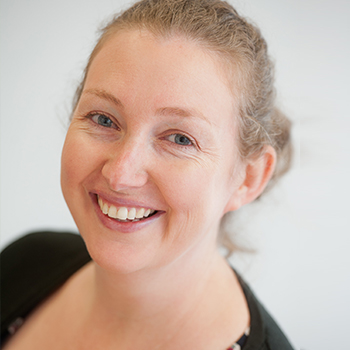
I hold a BA (Psychology and English) and BA (Hons) Psychology, both from Rhodes University in South Africa, as well as an MSc in Investigative Psychology and a PhD in Forensic Psychology, both from the University of Liverpool. My PhD thesis focused on police leadership during critical and major incident management. I joined the Department of Psychology, Sociology and Politics at Sheffield Hallam University in 2015. Prior to this, I held a lectureship in Investigative Psychology at Birmingham City University (2014-2015), a lectureship in Forensic Psychology at the University of Nottingham (2012-2014), and a research fellowship in Forensic Psychology at the University of Nottingham (2010-2012). My research interests tend to focus on child protection, domestic abuse, crisis negotiation, hate crime, forensic organisational issues, identification of risk, and critical and major incident management. My main teaching interests are in the areas of Forensic Psychology, Social Psychology, and Developmental Psychology. I supervise a number of undergraduate and postgraduate research dissertations, usually in the area of Forensic Psychology, as well as several PhD students.

I am a researcher and lecturer focusing on LGBTQ+ identity and how humans interact with technology. I am especially interested in exploring how we use social media to share and debate forms of identity. Specific areas of research include: How young people and emerging adults express their identity through social media, and if it is more helpful or harmful; How underrepresented individuals and groups respond to institutional systems through virtual social movements and forums for popular protests; How less well-understood identities – such as those who identify as Queer and Trans – have historically lacked representation can be better heard; and How individuals and groups manage intersections of complex identity when engaging with other individuals and broader institutional systems.
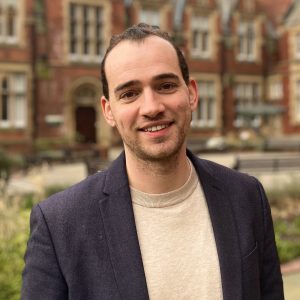
Marcel Obst is a Research Fellow at CENTRIC and a member of the Centre for the Study of Women and Gender (University of Warwick). He is currently working on 3PO, examining the impact of online harms on public-facing professionals, with a focus on mitigating these harms through tech development. Marcel is specialised in qualitative research methods and has previously worked on anti-gender mobilisations, the far right, migration, sexuality and affect. He holds a PhD in Sociology from the University of Warwick, a PGCE, and Master’s degrees in Gender Studies and migration from the University of Leeds and the Universitat Autònoma de Barcelona (Spain).
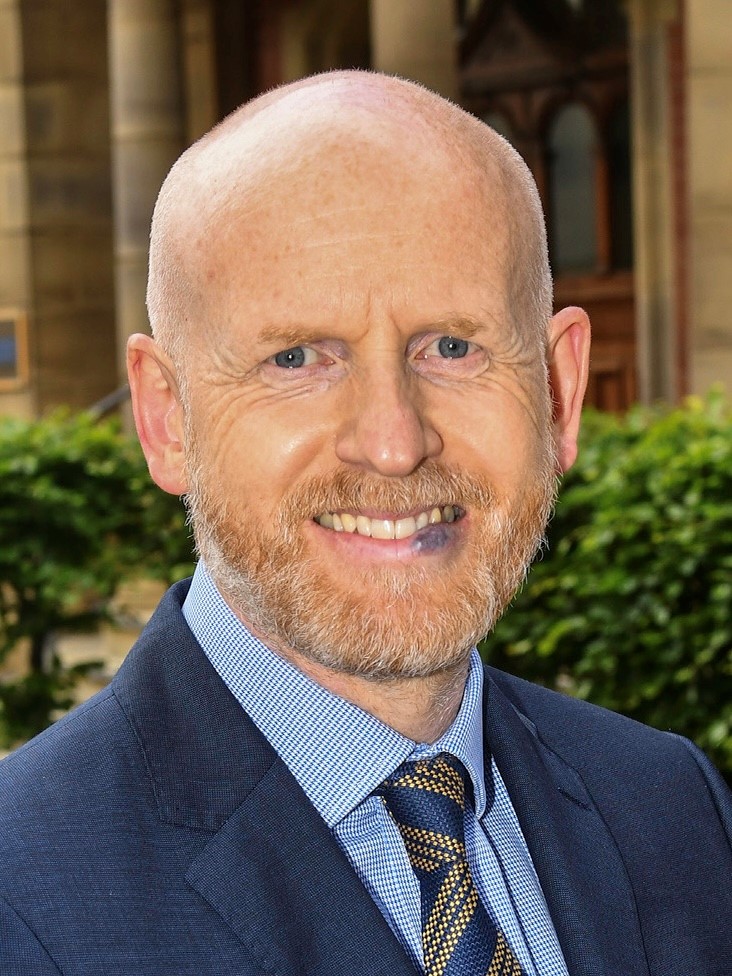
Martin is a former Detective Chief Superintendent with 30 years’ policing experience and 15 years working in senior leadership roles within West Yorkshire Police and Counter Terrorism Policing. He was Head of Counter Terrorism Policing North East between 2017-2022, responsible for delivering all elements of the Government’s Contest strategy and CT policing across the North East region of England, collaborating with 7 regional forces and multiple national and regional partners. He also led on national capabilities and work programmes as part of the national CTP network. He is a graduate of the International (Five Eyes) ‘Leadership in Counter Terrorism’ programme. Martin also has a wealth of experience in core policing functions including serious and volume crime investigation, anti-corruption and operations, including the policing of major events, sporting events, demonstrations and public order scenarios. He was awarded the Queen’s Policing Medal (QPM) for distinguished service in the Birthday Honours 2021. Martin is keen to bring that experience into a number of elements of academic research and support engagement into counter terrorism, government and policing bodies.
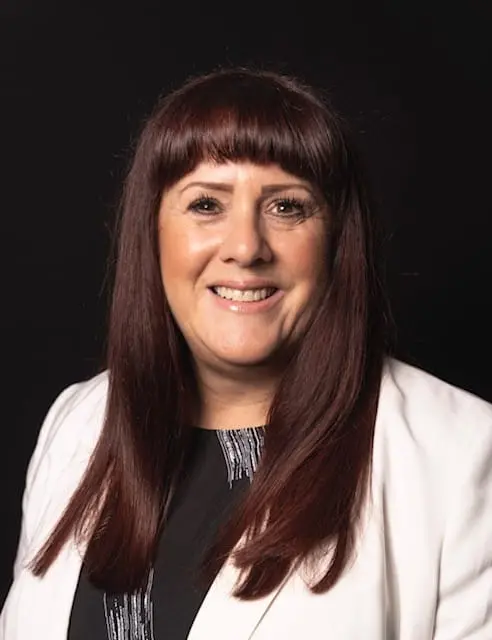
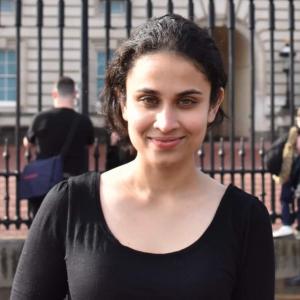
Lasara Kariyawasam is a Postdoctoral Research Fellow for the Centre for Criminology at University of Oxford, working on the project “3PO, Protecting public-facing professionals and their dependents online”. Her main research interests lie within Clinical and Forensic Psychology. She has specific interests in cross-cultural research and protecting vulnerable individuals from online risks and harms and has carried out several published researches on compassion and self-harming in relation to cross-cultural contexts, post-natal depression, and ethics in mental health. She was previously engaged in the “BeGood Project” within the Department of Psychiatry and Neuroscience at the University of Oxford, where Lasara and her team conducted research on “Adolescents’ perspectives on data sharing in the age of predictive psychiatry”. Lasara completed her PhD at the University of Southampton on exploring and evaluating the cross-cultural applicability of compassion-based interventions. She also completed an MSc in Clinical Psychology at the University of Southampton and received the Dean’s List Awards for the degree average, part average, and dissertation performance in addition to passing her MSc with a Distinction. During her MSc, Lasara also worked as an Honorary Assistant Psychologist for the Learning Disability Team at the Southern Health NHS Trust.

Katrin Mueller-Johnson is Associate Professor of Criminology and a Research Fellow at Green Templeton College.
She holds a PhD in Human Development from Cornell University, a MSt in Legal Research from the Centre of Social Legal Studies, University of Oxford, and a Dipl. Psych. Degree in Psychology from the Free University of Berlin. Her research interests are centred around victimisation, investigative interviewing and police as well as legal decision-making. Within the area of victimisation her main concentration is on sexual offences, such as in child sexual abuse or rape. Her current research focuses on vicarious victimisation of police officers and police staff in the context of child abuse investigations. Her research into investigative interviewing is connected to this interest in sexual victimisation as in sexual offences there is often little evidence apart from the victim statement and thus the victim’s testimony is of crucial importance. Dr Mueller-Johnson studies police interviewing of vulnerable witnesses, such as the investigative interviewing of children, older adults, or persons with disabilities. One major area of this research is on ways to improve the quality of police interviews. Her research on decision-making in the criminal justice context spans police as well as jury and judges’ decision-making. Here projects have looked into differences in how potential jurors interpret the phrase “beyond reasonable doubt”, and into judges’ assessments of witness credibility. Her work has been funded by the AHRC, ESRC, British Academy, Newton Trust, Optimus Foundation and Department of Justice for Northern Ireland. She has collaborated with UK and international police forces.

I am a Lecturer in Security and Crime Science in the Department of Security and Crime Science at University College London. I am part of UCL’s Academic Centre of Excellence in Cyber-Security Research (ACE-CSR) and a Principal Investigator at the Research Institute in Socio-Technical Security (RISCS). I currently lead UCL’s part of the 3-year ESPRC project Protecting public-facing professionals and their dependents online (3PO). My research focuses on human-centred security and privacy. I fundamentally believe that security and privacy are never the primary task but should instead be seen as an enabler for productivity and society more generally. I work with people and organisations to build and study systems and policies that are both secure and productive.

I’m a Senior Research Fellow at the Department of Security & Crime Science at UCL. I have over two decades of research experience in the counter-terrorism/security and crime prevention fields. I have undertaken work, with colleagues, for various UK Government Departments (Home Office, OSCT, YJB, DfE), The European Commission (Landsec), The European Union Agency for Fundamental Rights (FRA) and a range of other funders (CREST, and for various Police Forces and research councils). I have acted as an ‘Expert Evaluator’ for the European Commission on Preventing and Countering Violent Radicalisation (€5 million budget) and have acted as a reviewer for the Campbell Collaboration (Criminal Justice evidence synthesis). I also sit on the Editorial Board for The British Journal of Community Justice and am an Article Editor for the journal. My research interests concern violence in its many manifestations; political violence, radicalisation, extremism and hate crime. More recently I have been researching the impacts of social media use on serious youth violent crime/knife crime, the findings of which helped inform a recent BBC Panorama programme ‘A Social Media Murder: Olly’s Story. Myself and a colleague have also designed a bespoke intervention programme (in Beta) to address this type of social media fuelled violence for young offenders. Finally, my doctoral work examined the evolution of tactical repertories and innovations between police and protestors, including the impact of state surveillance practices and counter-measures.
I’m currently working with 3PO (https://3po-project.co.uk) colleagues in researching the types of risks and harms police officers and their families can face from being online (particularly using social media) with the purpose of developing advanced tools and measures to mitigate such harms. I’m also working with colleagues at the Centre for Resilient Societies (CRIS) at Deakin University, Melbourne, on a new international study examining contemporary recruitment processes to violent extremism. The aim of this research is to develop a new model that updates our understanding of how terrorist recruitment works across different ideological and technological platforms.

Shane joined Edinburgh Napier University as a Lecturer in Criminology in August 2019. Shane is currently the program leader for the BSc in Policing and Criminology, and teach on the topics of; policing and security, cybercrime and cybersecurity, criminological theory, online research methods, criminal justice, and surveillance. Shane is an affiliate of the Scottish Centre for Crime and Justice Research and the Scottish Institute of Policing Research, and also convenes the School of Applied Science Research integrity Committee. Shane research interests include the the sociological study of cybercrime and cybersecurity, and police responses. In particular, their work has explored how people and organisations make sense of cybercrime and enact cybersecurity behaviours and policies in their routine everyday lives and operations. Shane is in interested in further developing criminological and sociological perspectives on cybersecurity, the policing of cybercrime, and novel ways ICT is deployed in the governance of security. Shane is currently accepting doctoral candidates whose research relates to cybercrime and online harm, the sociological dimensions of cybersecurity and privacy, and the impact of new technologies on crime, policing, and criminal justice.
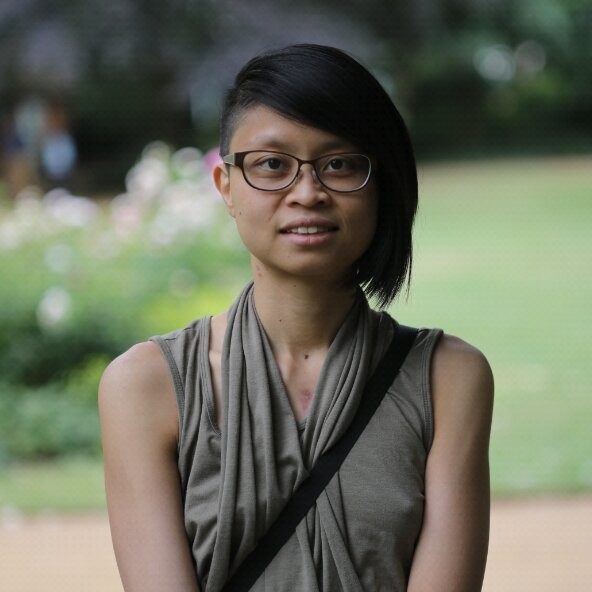
Yen Nee Wong is an interdisciplinary feminist sociologist working as an ESRC postdoctoral Fellow in the department of Social Policy, Sociology and Social Research at the University of Kent. Yen Nee’s work focuses on the sociology of partner dancing, queer theory, genders, sexualities, embodiment, media and culture.
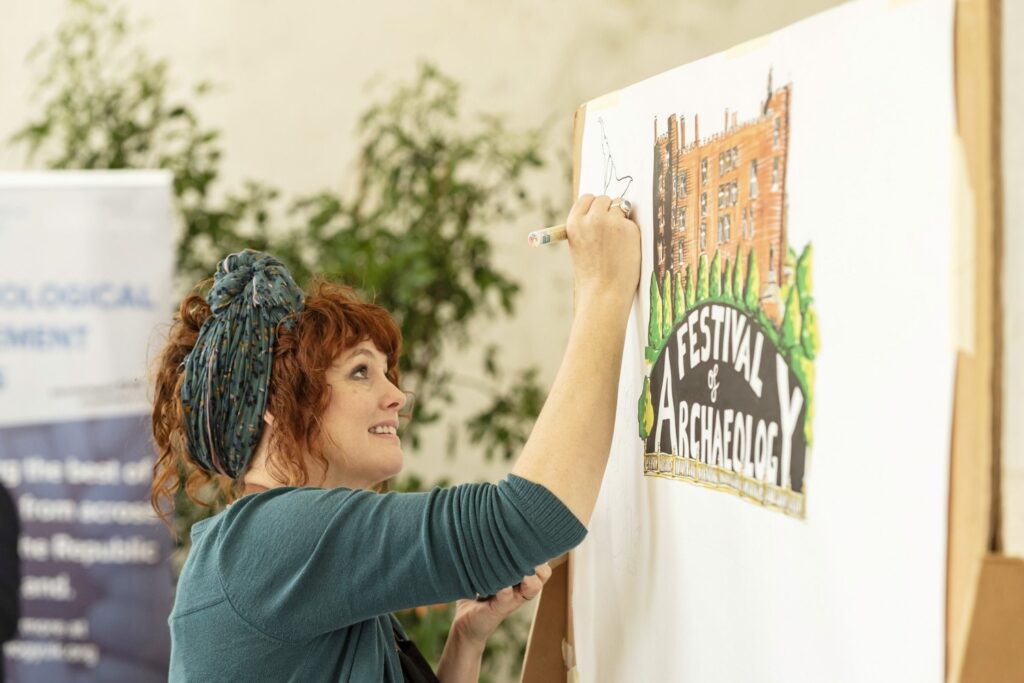
Becky Bryson is a freelance visual artist based in Merseyside. She has been creating visual minutes (sometimes called Graphic Recording or Scribing) as well as her other 3D and sculptural artwork for over two decades and has worked with a vast number of clients and organisations both nationally and internationally. Visual minutes are a live, illustrated record of conferences, events or meetings. It’s about listening and then visualising events in a dynamic way. Becky is part of a collective of illustrators and visual scribes called ‘More Than Minutes’. WWW.beckybryson.com Instagram – @flotsamfables (Becky Bryson) www.morethanminutes.co.uk
Laura Corrick is the evidence based policing co-coordinator for Lancashire Constabulary. Her focus is on creating and supporting impact for policing research.
Jack is a researcher at CENTRIC. He graduated from Sheffield Hallam University with a First Class Honours in BSc Computer Science. After graduating, he spent some time working as a Full Stack Software Developer for a few years where he gained lots of experience on how to create, maintain and architect complex software applications. Jack is currently working on the 3PO project, where he is collaborating with other researchers to deliver the technical aspects of the project.